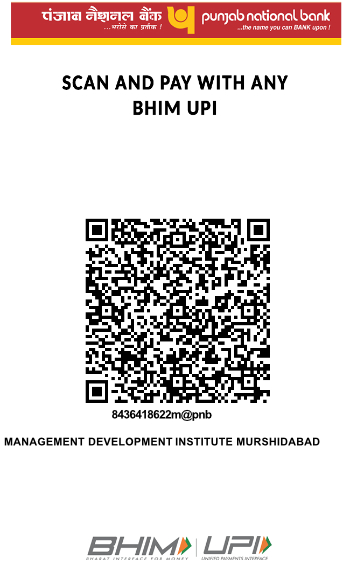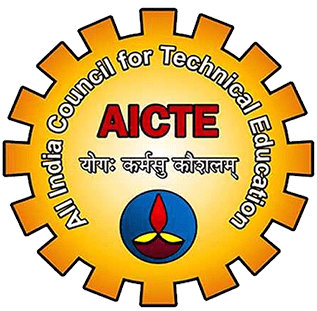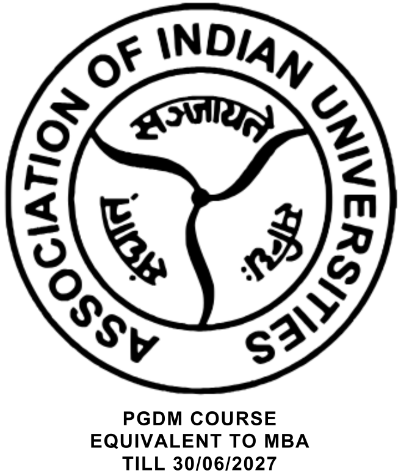About ICRSP 2024
The objective of ICRSP 2024 is to present an international platform for showcasing recent research related to the area of Resilience and Sustainable Performance. The conference intends to assemble leading researchers, academic scientists and practitioners from around the world to exchange and share their experiences and research results, to appreciate research talents and for motivating research spirit among students, research scholars and academicians.
In an era marked by rapid technological advancements, unpredictable market dynamics, and global uncertainties, the ability of organizations to not only survive but thrive amidst challenges has never been more crucial. Organizational resilience, the capacity to anticipate, prepare for, respond to, and adapt to incremental change and sudden disruptions, has become a key differentiator for sustainable success.
Equally important is the concept of sustainable performance, which encompasses the long-term health and viability of organizations. This goes beyond mere financial success, integrating social, environmental, and economic dimensions to create value for all stakeholders. Achieving sustainable performance means balancing short-term gains with long-term objectives, ensuring that business practices contribute positively to society and the planet.
Throughout this conference, we will delve into various aspects of these intertwined themes. Our esteemed speakers and panellists, who are thought leaders and industry experts, will share their insights and experiences. We will examine case studies, innovative strategies, and practical tools that can help organizations build resilience and achieve sustainable performance.
Themes
1. Integrating theories and practice of resilience
The terms “resilience” and “agility,” “adaptability,” and “absorption” are more closely related when considering the everyday changes brought about by frequent disturbances in organizations. The concept gains scholastic appeal due to its applicability in organizations with dynamic capability and complexity theories.
It covers a wider range of topics, including: 1) how much a system can change while maintaining the same constraints on its structure and function; 2) how much a system may self-organize; and 3) how to develop and enhance a system’s capacity for learning and adaptation. Ironically, the first type of resilience has only been widely documented in real-world situations. Its diverse approach in organizational planning has limited its uses in alleviating environmental hazards and issues, including hurricanes, floods, earthquakes, and global warming. Instead, it has been very conservationist and its semantic expansion is therefore seriously questioned. Because of its ambiguous understanding of multiple occurrences, its analytical or descriptive nature has had difficulty shifting to normative form in organizational planning. When it makes transition from phenomenological viewpoints to an ethical and political outlook, it is pursued differently. Consequently, it is still unclear what resilience’s paradigm is.
2. Multilevel operation of resilient approaches in organization
Organizations are dealing with more and more different kinds of crises. Conventional approaches to crisis management and business continuity, which are ingrained in procedures, policies, and handling techniques, frequently fall short of ensuring an organization’s survival. The role of human resources is undermined when an organization adopts a strategic stance to absorb and adapt to changes brought about by disturbances and disruptions. Furthermore, there is also a lack of clarity on the role that group or team resilience plays when strategic resilience operates at the organizational level. As such, the precise mechanisms by which resilience operates in organizations at various levels of analysis remain largely unknown. There hasn’t been much discussion on how these different levels work together or can be further integrated. It’s also unclear if the difficulties in implementing resilient drivers at every organizational level are the same or different.
3. Challenges associated with sustainable performance
The business landscape has changed dramatically as a result of Industry 4.0, calling into question several of the established sustainable practices. Furthermore, there is a growing global awareness about carbon footprints, which has made sustainable practices and organizational performance mandatory and demanding. There has been a tremendous increase in the growing scholarly interest in sustainable practices and performance. In addition, as drivers change and their impact increases, practitioners are reframing scorecards for sustainable success. The increasing complexity brought about by the presence of several drivers and the further development of new ones could raise red flags. As a result, it is still quite difficult to determine how they will affect the organization’s performance and sustainability objectives. There is less emphasis on quantitative methods and more on qualitative methods in scholarly work. It is yet unknown how different drivers can be combined in a single platform to enhance sustainable performance. Furthermore, not all contextual elements that support or obstruct the sustainable drivers of performance have been investigated.
Thus we have following the sub themes for the conferences:
- A. Integrating theories and practices of resilience
- B. Self-organizing capacity for building resilience in organization
- C. System capability for learning and adaptation
- D. Paradigm of organizational resilience
- E. Uniformity in usages of resilient drivers across the organizational levels
- F. Mechanism of resilience
- G. Role of human resources in establishing resilience in organization
- H. Team resilience from comprehensive lens
- I. Integration of potential sustainable drivers and influence on sustainable performance
- J. Exploring the potential novel sustainable drivers
- K. Technological challenges to sustainable performance
- L. Circular economy and sustainable performance
- M. Big data analytics and sustainable performance
- N. Impact of governance and institutions of sustainable performance
- O. Well-being and sustainable performance
- P. Performance goals, metrics and sustainable performance
- Q. ESG and sustainable performance
The scope of the Conference covers the domains of Human Resource Management, Organizational Behavior, Marketing, Finance, Operations & Information Systems Management, Business Innovation and Entrepreneurship. It will capture various aspects of the aforementioned themes as mentioned. This Conference provides a potent platform for researchers, practitioners, and educators to share research and innovation, as well as to deliberate on recent challenges, and trends. Along with submissions in each domain area, we also encourage cross-domain submissions cutting across subject-areas. The conference will consist of presentations of refereed papers, Workshops and Keynote speakers.
Call for Papers
Track – Organizational Behavior and Human Resource Management
- Workplace Diversity
- Organizational Creativity
- Work Culture
- Employee Engagement
- Leadership
- Talent Management
- Green HRM
- AI & HRM
Track – Marketing
- Technology and Marketing
- Consumer green behavior
- Marketing Intelligence
- Marketing Analytics
- Branding
- Sales and Distribution Management
- Retailing
- Services Marketing
- Product Management
- Green Marketing
Track-Operations & Information Systems Management
- Inventory Management
- Demand Planning and Forecasting Techniques
- Capacity and Production Planning
- Logistics Management and Green practices
- Supply Chain Management & Resilience
- Transportation and Network Models
- Quality Control and Management
- Project Management
- Operations Strategy
- Service Operations Management
- Green Supply Chain management
Track – Finance
- Financial Markets
- Derivatives and Risk Management
- Fintech
- Corporate Finance
- International Finance
- Behavioral Finance
- Microfinance
- Banking and Financial Institutions
- Asset Pricing
- Green Finance
Track-Business Innovation
- Business Development
- Business Process Management (BPM)
- Business Intelligence (BI)
- Business Information Systems
- Sustainable Development
- Sustainable Innovation
- Innovation in services, logistics and supply-chain management
- Innovation, Business and Technology
Track-Entrepreneurship
- Sustainable entrepreneurship
- New venture formation
- Policies to enhance entrepreneurship and innovation
- Regional and global dynamics of entrepreneurship and innovation
- New product development, new process development and service design;
- Patents, licensing, and intellectual property;
- Business model innovation and technology transfer
Note: The above list is indicative. Papers conforming to the overall theme of the conference but not mentioned in topics above are also welcome.
Paper Submission Guidelines
- Full paper should be original, unpublished and should not exceed 4000 words.
- Abstract should be limited to 250 words.
- The document must be in double space format using 12 point font size.
- The submission should contain: The title, name(s) of the author(s), affiliation(s), JEL classification codes, and e-mail address of each author.
- APA style for referencing should be followed.
- Word submissions are required.
- The submission Web page for ICRSP 2024 is:
https://easychair.org/conferences/?conf=icrsp2024 - Alternatively you may submit your paper at the Conference official Email-ID:
icrsp@mdim.ac.in
Review Process
- All manuscripts are subject to review and are expected to meet standards of academic excellence. Manuscripts will be reviewed by peer-reviewers, whose identities will remain anonymous to the authors.
- Based on the reviewer’s comments, the organizing committee will take one of the following decisions:
- Accept without revisions
- Accept with minor revision
- Accept with major revision
- Non acceptance
Important Dates
- Full Paper Submission Deadline: 15th November, 2024
- Abstract Registration Deadline: 15th November, 2024
Registration Fee
| Type of delegate | Indian (INR)* (Including SAARC Countries) | Foreign (USD)* |
| Corporate/Academicians/ Research Scholars | 5000 + 18% GST | 100 + 18% GST |
| Students | 3000 + 18% GST | 50 + 18% GST |
Please fill the Registration Form (Form Link: https://forms.gle/QNfNQ1FN9voypQZv6) with the payment receipt once you get the acceptance mail. Alternatively you can also mail with the payment receipt at icrsp@mdim.ac.in.
Bank Details
Name of the Beneficiary: Management Development Institute Society
Account Number: 1377205500000019
IFSC Code: PUNB0137720
Bank & Branch: Punjab National Bank, Omarpur Branch, West Bengal.
PAYMENT QR Code for Payment of Conference Registration Fees

Mode of Conference
The conference will be conducted in online mode.
Publications
All Full papers will be considered for publication in:
- Edited Book by Bloomsbury (Scopus Indexed with ISBN)
- Vision: the Journal of Business Perspective, a collaborative endeavour of MDI Gurgaon and SAGE Publications (indexed in Scopus & ABDC)
- Conference Proceedings with ISBN
KEY HIGHLIGHTS
Workshop Topics: Systematic Literature Review & How to Publish in Top Tier Journals
Speakers
Prof. Dr. Sascha KrausFree University of Bozen-Bolzano | Faculty of Economics & Management Sascha Kraus is Full Professor of Management at the Free University of Bozen-Bolzano, Italy, and Distinguished Visiting Professor at the University of Johannesburg, South Africa. He holds a doctorate in Social and Economic Sciences from Klagenfurt University, Austria, a Ph.D. in Industrial Engineering and Management from Helsinki University of Technology and a Habilitation (Venia Docendi) from Lappeenranta University of Technology, both in Finland. Before, he held Full Professor positions at Utrecht University, The Netherlands, the University of Liechtenstein, École Supérieure du Commerce Extérieur Paris, France, and Durham University, United Kingdom, as well as Visiting Professor positions at Copenhagen Business School, Denmark and at the University of St. Gallen, Switzerland. The leading German financial magazine “Wirtschaftswoche” lists Professor Kraus in its current ranking (2022) of all German-speaking business/management professors for the second time in a row at position 2 in the category “Current research achievements”, and for the first time in the top 10 in the category “Lifetime achievement”. In 2022 and 2023, Clarivate has ranked him among the world’s 100 most impactful researchers in Economics and Business by the Web of Science Highly Cited Researchers Reports. |
Prof. Dr. Arpan KarIndian Institute of Technology Delhi | Department of Management Studies and School of Artificial Intelligence Prof. Arpan Kar is full Professor and ASG Endowed Chair Professor in Information Systems in Indian Institute of Technology Delhi, India. He has a joint appointment in the Department of Management Studies and School of Artificial Intelligence. Administratively he chairs Corporate Relations, member of Advisory Committee for the Overall Curriculum Development Cell of IIT. He also supports multiple government ministries and other universities in different boards/advisory/selection committees. He works in the adoption, usage, user experience and impacts of emerging information technologies, often using computationally intensive theory building methods. He has authored over 200 publications and edited 12 indexed books, of which over 85 publications are in ABDC A, ABS 3 and WoS Q1 level journals, and 16 are ABDC A* publications. His research has been cited over 16000 times, with an H index of 58. He is the Editor in Chief of International Journal of Information Management Data Insights, which is a Q1 journal published by Elsevier. He is a senior Editor in Decision Support Systems (ABDC A*). He is an Associate Editor in International Journal of Information Management (ABDC A*), Communications of the Association for Information Systems (ABDC A), Journal of Computer Information Systems (ABDC A) and Global Journal of Flexible Systems Management (ABDC A). He has been a Guest Editor for reputed journals like Journal of the Association for Information Systems (ABDC A*), Decision Support Systems (ABDC A*), Industrial Marketing Management (ABDC A*), International Journal of Information Management (ABDC A*, 2 SIs), and few more ABDC A journals. He has undertaken over 40 sponsored research, advocacy and training projects. He received the Research Excellence Award by Clarivate Analytics in 2021 for highest individual Web of Science citations from 2015-2020 in India. He received the BK Birla Distinguished Researcher Award in 2020 based on the count of ABDC A*/ABS 4 level publications over a period of 5 years in India. He is the recipient of the Best Seller Award from Ivey / Harvard in 2020 for his authored case on social media analytics. In total, he has received over 20 national and international awards including 8 best paper awards from ACM, IFIP and IEEE conferences. |
Dr. Abhishek BehlAssociate Professor | Research Coordinator – Keele Business School Reviewing to Publishing in Journals: A journey of scholarship in research Abhishek Behl has earned his second Ph.D. from Indian Institute of Technology, Bombay where his research is in the area of crowdfunding and gamification. He is a winner of the prestigious “Naik and Rastogi Award for excellence in PhD” from IIT Bombay. He holds a rich experience of teaching, research and consultancy. He has also served as a Senior Manager- Research at Centre for Innovation Incubation and Entrepreneurship, IIM Ahmedabad. His research is in the area of gamification, stakeholder engagement, sustainability, and e-commerce start-ups. He is an incoming president of Special Interest Group (SIG)- GAME of AIS. He is an Associate Editor of the Journal of Global Information Management; Journal of Global Marketing; International Journal of Manpower; International Studies of Management and Organization; South Asia Journal of Business Studies; Journal of Cases on Information Technology; Assistant Editor of Technology Forecasting and Social Change and in an area editor (South Asia) of the International Journal of Emergency Services. He features on the editorial board of many journals like International Journal of Information Management; Journal of Electronic Commerce in Organization; Journal of Promotion Management; Young Consumer; Management Decision; and Society and Business Review. He has edited three books. He has published in journals like Industrial Marketing Management; International Journal of Information Management; IEEE Transactions on Engineering Management; Production Planning and Control; Annals of Operations Research; Journal of Business Research; Technology Forecasting and Social Change; Journal of Knowledge Management; Computers in Human Behaviour; Internet Research; International Marketing Review; Journal of Enterprise Information Systems; Industrial Management and Data Systems, etc. |
Prof. Dr. Gopal P MahapatraProfessor of Practice, Organizational Behavior & Human Resources Management | Chairperson, Organizational Behavior & Human Resources Management Prof. Gopal P Mahapatra holds a Doctoral Programme in Management (FPM)from IIM, Bangalore, and a Post-Graduate in Personnel Management & IR from Xavier Institute of Social Service, Ranchi. He has also received extensive training in Coaching from Prof. Marshall Goldsmith and is a Certified Executive Coach by Results Coaching and Ericson Coaching. His certifications by Future Search, PDI, Mercer, and MBTI (by APT) further validate his expertise. He has also received training in Strategic HR from the London Business School, and Total Quality from JUSE, Tokyo. He was earlier the President of the National HRD Network and Bangalore. He has been a visiting faculty member at IIM Bangalore, Kolkata & IIM Udaipur. He has been on the Academic Council, Advisory Board of many institutions, and leading B- Schools. He has published a few cases in Harvard Business Publishing and articles in several international and national journals. He was the founder, Associate Editor of the South Asian Journal of HRM and the current Associate Editor of Sage NHRDN Journal. He has Edited a Springer Book on OB & HRM Business Cases, co-edited three books on HRD, and edited a Special Journal Issue of NHRDN on “Neuro Science and HRD “ and “Organisation Development”. |
Prof. Dr. Smriti AnandProfessor of management, Illinois Institute of Technology’s Stuart School of Business in Chicago. Her research interests include leadership, diversity, and non-traditional work arrangements (i-deals) with particular focus on multi-level and cross-cultural frameworks. Her research has been published in leading journals of management, such as the Academy of Management Journal, the Journal of Applied Psychology, and The Leadership Quarterly. She is currently one of two co-editor-in-chiefs for Human Relations journal (ABDC Journal Ranking: A*; Listed in Financial Times’ FT50). Anand has 10+ years of high-tech industry experience in diverse areas such as electrical and software engineering, product development, and marketing at firms such as Information Resources, Inc. and Motorola, Inc. Her professional experience includes managing globally spread cross-functional teams to lead several projects and products from concept to field launch stage. For instance, as a lead engineer she managed the entire development and deployment process for four new software products over two years with a budget of $2 million. As a product manager she spearheaded development and launch of Bluetooth products and GSM phones for the Asian market (market size more than $70 million/year). |
Dr Swetketu PatnaikHead of School: School of Economics, Finance and Law (SEFL), Anglia Ruskin University, UK Swetketu received his PhD in Corporate Strategy and Policy from University of Liverpool analysing evolution of inter-organisational relationships (strategic alliances) in the biopharmaceutical industry. Before pursuing a career in the academia, he attained rich experience working in the pharmaceutical industry, management consultancy and electronic media sector in India. He has been researching and advising organisations on matters relating to management of strategic alliances and organisational change. He has recently completed a four year research studying a strategic alliance between two Blue Light organisations in the UK. His forthcoming book (with Professor Paresh Wankhade) ‘Collaboration and Governance in the Emergency Services: Issues, Opportunities and Challenges’ is published by Palgrave Macmillan. Swetketu’s research and practitioner expertise revolves around management of inter-organisational relationships and management of organisational change and adaptation. |
Linda D. ManningAssociate Professor, Director of the Center for Sustainability in Education, Christopher Newport University Linda D. Manning, Ph.D., is an Associate Professor of Communication at Christopher Newport University. She earned a BA in French and Comparative Area Studies from Duke University, a MA in Communication from the University of North Carolina at Chapel Hill, and a PhD in Human Communication from the University of Denver. Her research considers how families use narrative as a sense-making device for major life events. In particular, she has studied how families construct a shared identity in the context of visible adoption and how families navigate a new normal in the face of life-threatening illness. An emerging aspect of her research centers sustainability and how families, neighborhoods, and higher education institutions frame sustainability issues. She has been published in the Communication Teacher, International and Intercultural Communication Annual, Journal of Global Initiatives: Policy, Pedagogy, and Perspective, Women’s Studies in Communication, and several edited books. She was recently appointed director of the Center for Sustainability in Education at Christopher Newport University. |
ORGANIZING COMMITTEE MEMBERS
PATRON
Prof. (Dr.) Ajay K. Jain, Director, MDI Murshidabad, India
Conference Chairs
Dr. Niharika Gaan, Chairperson Continuing Education, MDI Murshidabad, India
Dr. Amrita Sengupta, Chairperson PGDM, MDI Murshidabad, India
Contact Us
Conference Coordinator- Mr. Abhishek Dasgupta
Mobile No: +91-9614646273
Email-ID: icrsp@mdim.ac.in
Dr. Niharika Gaan, Chairperson Continuing Education, MDI Murshidabad, India
Mobile No: +91-8917219061
Email-ID: niharika@mdim.ac.in
Dr. Amrita Sengupta, Chairperson PGDM, MDI Murshidabad, India
Mobile No: +91-9831963560
Email-ID: amritas@mdim.ac.in
Campus Address:
Management Development Institute Murshidabad
Kulori, P.O. – Uttar Ramna,
P.S. – Raghunathganj, Dist. – Murshidabad,
West Bengal, PIN – 742235













